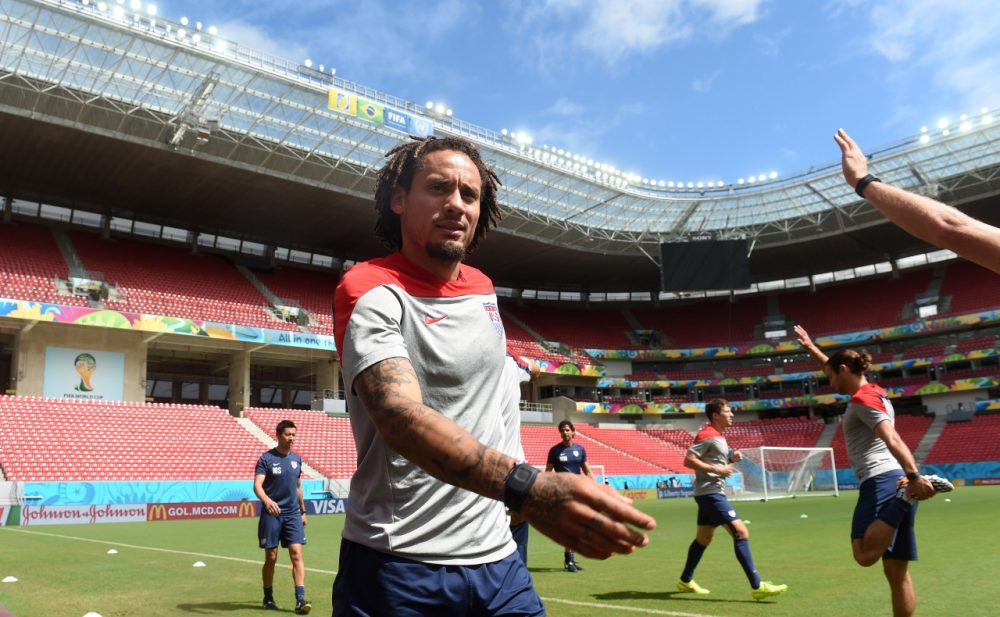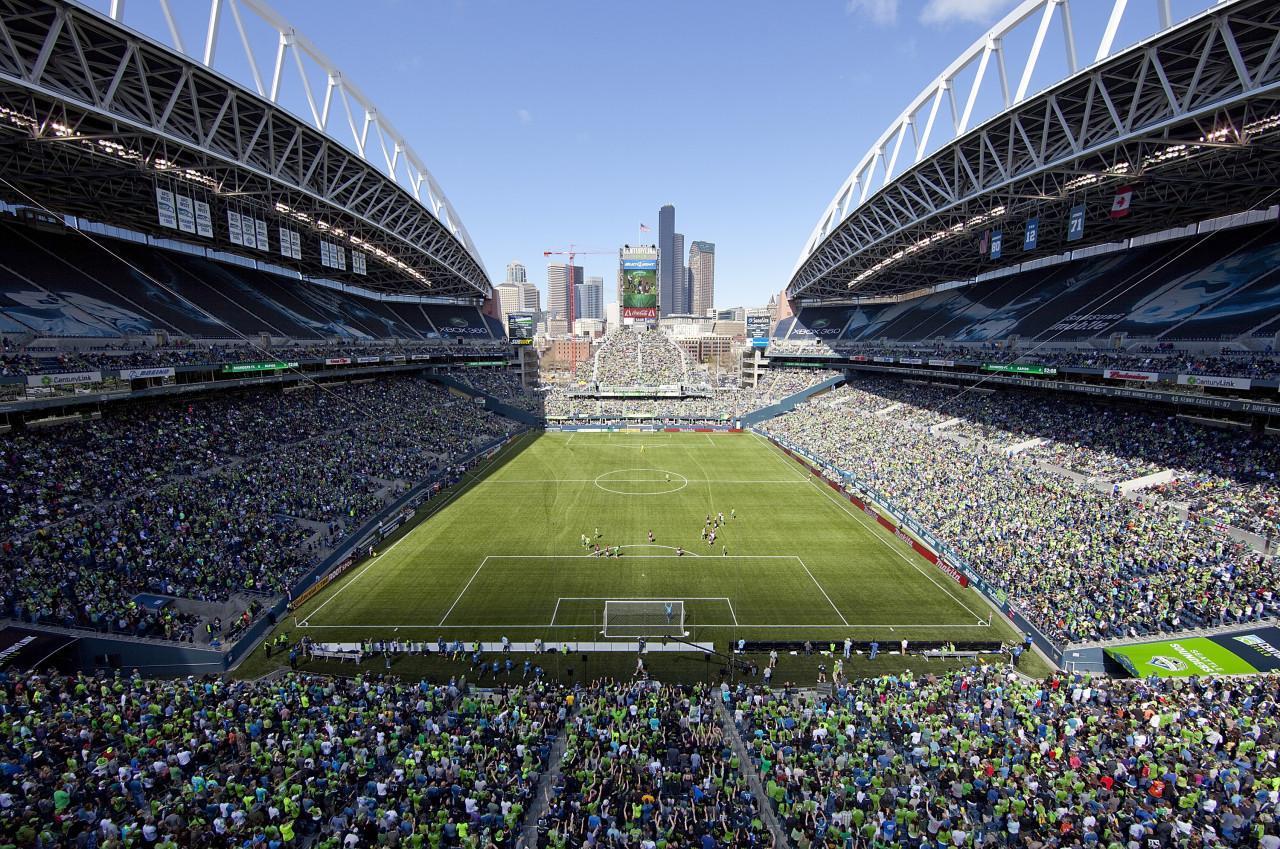Advertisement
Jermaine Jones And The Bizarre Rules Of MLS
Resume
At a press conference at Gillette Stadium in Foxborough, Mass. on Tuesday, the New England Revolution announced they had taken advantage of an option in Major League Soccer called the designated player rule, aka the David Beckham rule, to add U.S. national team midfielder Jermaine Jones to the team.
“I am happy to be here,” Jones said. “I'm ready to go, and I hope the coach can push me and push me that I'll be ready for the game in Toronto.”
“After 19 years of existence, should MLS have a better system in place or at least a more transparent system in place? Yeah.”
Steven Goff, Washington Post
The designated player rule permits MLS teams to pay select players more than the team's salary cap would otherwise allow. Over the remainder of this season and the next, Jermaine Jones will reportedly earn $4.7 million.
Revolution president Brian Bilello feels the acquisition is one way New England can benefit from the enthusiasm generated by the U.S. team at the World Cup in Brazil.
“There was a very specific rise in interest in the U.S. national team, and I think that energy you saw is because fans of soccer in this country, they support the national team in a big way. And with Jermaine, if I can risk embarrassing him, was the very best player we had at the World Cup, so when the opportunity came to add Jermaine to the Revolution, it was something we didn't hesitate to make happen,” Bilello said.
Actually, the process did involve some hesitation. Jones, who was born in Germany and has spent nearly all of his 14-year career playing there, had expressed interest in moving to MLS even before the World Cup, where he scored against Portugal and energized the U.S. midfield. But league policy meant that all the teams interested in signing him would have to be considered, whatever Jones's preference might have been.
A Bizarre And Mysterious Process
According to Steven Goff of the Washington Post, the procedure for determining where a designated player ends up has been — and remains — bizarre and mysterious.
[sidebar title="Economics Creating Havoc In Spanish Soccer" width="630" align="right"]Financial problems are causing turmoil in Spain's soccer leagues.[/sidebar]“In the end, it didn't matter which team he went to,” Goff explained. “He was still going to receive the same amount of money. The question was how they were going to decide which team acquires him. And in the end it came down to a blind draw, which has been rightly ridiculed by fans and media since it took place.”
The losers in the so-called "blind draw" were the Chicago Fire. They'd apparently been negotiating with Jones and his agent before New England opted in. But after nearly two decades, shouldn't MLS have developed a system of player signings that doesn't leave people scratching their heads and wondering what a "blind draw" might be?
“Is the MLS system perfect? No, certainly not,” Goff said. “After 19 years of existence, should MLS have a better system in place, or at least a more transparent system in place? Yeah.”

Among those who are optimistic that a better system might be coming is Don Ruiz, who covers the Seattle Sounders for the News Tribune. He sees the confusion that has attended some of the designated player signings as attributable to the league's determination to maintain centralized control over player movement in order to promote parity and spread the wealth.
“I think in general the feeling might be more that United States and Canada soccer leagues have sort of come and gone, and so this one, I think, is sort of claiming survival exceptions in a way that maybe surviving tops fairness and thriving tops fairness in certain ways,” Ruiz said.
The Payoff?
The Seattle Sounders, the team Ruiz covers, are already thriving. They are successful on the field, lead the league in attendance by an enormous margin — and, according to Ruiz, they've figured out how to use the designated player rule to their advantage.
“[MLS] is sort of claiming survival exceptions in a way that maybe surviving tops fairness and thriving tops fairness in certain ways."
Don Ruiz, The News Tribune
“From that first expansion season, they have had DP's, starting with Freddie Ljungberg and the next season Blaise Nkufo and had very much mixed results,” Ruiz explained. “Then they sort of changed their philosophy a little bit to try and go with mid-career players rather than players later in their career, making victory laps. And also they've begun using the designated player rule as a way to retain some of their best players.”
"Mid-career" hardly describes Jones, who is 32. But on Tuesday, Jones assured Revolution fans that they wouldn't regret their team's use of the designated player rule to bring him to New England.
“[Whoever] knows me knows I'm not a guy who likes to lose. So we have a young team — sometimes I have to kick a guy in the ass, but only in a good way,” Jones said. “So I like to win, and we will try everything that we get some wins.”
The Revolution would be delighted with more wins, certainly, and perhaps even more delighted if Jones helped them get their average attendance, now a little over 15,000 per game, a little closer to Seattle's 43,000.
This segment aired on August 30, 2014.
